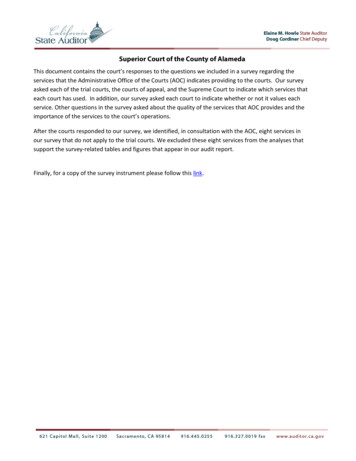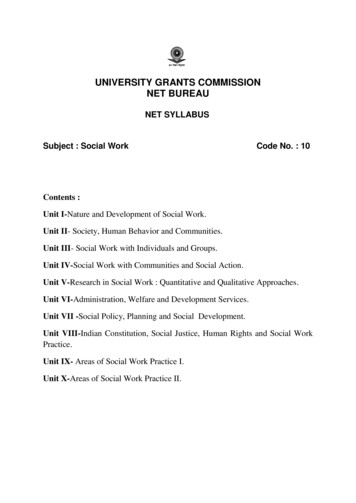
Transcription
7- S E S S I O N B I B L E S T U DYFO R T E E N G I R L SFA I T H A N D FI R EPRISCILL A SHIRER
Published by Lifeway Press 2021 Priscilla ShirerNo part of this book may be reproduced or transmitted in any form orby any means, electronic or mechanical, including photocopying andrecording, or by any information storage or retrieval system, exceptas may be expressly permitted in writing by the publisher. Requestsfor permission should be addressed in writing to Lifeway Press ; OneLifeway Plaza; Nashville, TN 37234-0152.ISBN 978-1-0877-4277-9Item 005831695Dewey decimal classification: 221.92Subject heading: FAITH / ELIJAH, PROPHET / BIBLE. O.T. 1 KINGS—STUDYAND TEACHINGAll Scripture quotations, unless otherwise indicated, are taken from theNew American Standard Bible (NASB), Copyright 1960, 1962, 1963,1968, 1971, 1972, 1973, 1975, 1977, 1995 by The Lockman Foundation.Used by permission. www.lockman.org. Scripture quotations markedCSB have been taken from the Christian Standard Bible , Copyright 2017 by Holman Bible Publishers. Used by permission. ChristianStandard Bible and CSB are federally registered trademarks of HolmanBible Publishers. Scripture quotations marked (NIV) are taken from theHoly Bible, New International Version , NIV . Copyright 1973, 1978,1984, 2011 by Biblica, Inc. Used by permission of Zondervan. Allrights reserved worldwide. www.zondervan.com. The “NIV” and “NewInternational Version” are trademarks registered in the United StatesPatent and Trademark Office by Biblica, Inc. Scripture quotationsmarked (ESV) are from the ESV Bible (The Holy Bible, EnglishStandard Version ), copyright 2001 by Crossway, a publishingministry of Good News Publishers. Scripture quotations marked(NKJV) are taken from the New King James Version . Copyright 1982by Thomas Nelson. Used by permission. All rights reserved. Scripturequotations marked NRSV are taken from the New Revised StandardVersion Bible, copyright 1989 National Council of the Churches ofChrist in the United States of America. Used by permission. All rightsreserved worldwide. Scripture quotations marked (NLT) are taken fromthe Holy Bible, New Living Translation, copyright 1996, 2004, 2007by Tyndale House Foundation. Used by permission of Tyndale HousePublishers, Inc., Carol Stream, Illinois 60188. All rights reserved.To order additional copies of this resource, write Lifeway ResourcesCustomer Service; One Lifeway Plaza; Nashville, TN37234-0113; Fax orders to 615.251.5933; call toll-free 800.458.2772;email orderentry@lifeway.com; order online at Lifeway.com.EDITORIAL TEAM,LIFEWAY STUDENTPUBLISHINGBen TruebloodDirector, Student MinistryJohn Paul BashamManager, Student MinistryPublishingKaren DanielEditorial Team LeaderAmanda MejiasContent EditorMorgan HawkProduction EditorAmy Lyon &Stephanie SalvatoreGraphic DesignersEDITORIAL TEAM,LIFEWAY WOMENPUBLISHINGBecky LoydDirector, Lifeway WomenTina BoeschManager, Lifeway WomenBible StudiesPrinted in the United States of America.Sarah DossEditorial Project Leader,Lifeway WomenBible StudiesLifeway Resources,One Lifeway Plaza, Nashville, TN 37234-0152Lawrence KimbroughContent EditorLindsey BushProduction EditorLauren ErvinGraphic Designer
ContentsABOUT THE AUTHOR.4INTRODUCTION.5PART ONEFaith: Committing to God’s ProcessWEEK ONE // GILEAD: The Starting Point.6DIGGING DEEPER: Heaven’s Rain.26WEEK TWO // CHERITH: The Part Nobody Sees.28WEEK THREE // ZAREPHATH: The Season of Refining.54PART TWOFire: Submitting to God’s PowerWEEK FOUR // CARMEL: Exposing the Counterfeit.80WEEK FIVE // CARMEL: Experiencing the Authentic. 106DIGGING DEEPER: The Holy Spirit and Fire. 132WEEK SIX // HOREB: Fear, Fatigue, and a Future. 134WEEK SEVEN // HEAVENWARD: Faith, Failure, and Beyond. 162LEADER GUIDE. 164ENDNOTES. 172Fa i t h a n d F i r e 3
ABOUT THE AUTHORWhether in packed-out arenas or intimate Bible studygroup settings, Priscilla Shirer’s influence has beensteady and trusted. For more than twenty years hervoice has resonated with raw power and unapologeticclarity to teach God’s Word. Through her speakingministry, best-selling books and Bible studies, or evenon a movie screen, her primary ambition is clear—tolift up Jesus and equip His children to live victoriously.Priscilla has been married to Jerry Shirer for twenty-oneyears. Together they lead Going Beyond Ministries,which exists to serve believers across the spectrum ofthe church. To date, the ministry has released morethan a dozen video-driven studies for women andteens on a myriad of biblical characters (like Jonahand Gideon), as well as topical studies on Discerning theVoice of God, The Armor of God, and others. Priscilla hasalso written a fiction series called The Prince Warriors, inaddition to award-winning books like Fervent and TheResolution for Women.She and her family make their home near Dallas,Texas, where between writing and studying, Priscillaspends her days trying to clean up after (and satisfy theappetites of) her three rapidly growing teenage sons.
INTRODUCTIONIT’S BEEN A LONG TIME COMING.It was 2014 when I first started studying and teaching on the life and ministry of Elijah.After sharing parts of his narrative in bits and pieces, I knew I had to write about him oneday. Little did I know the resource you’re holding in your hands would take another sevenyears to materialize.The reasons are many. Several other projects elbowed their way in, taking priority andpushing this one to the background. The busyness of my sons’ lives and my involvementwith them accelerated exponentially as they blossomed into young manhood. But most ofthe delay came from a number of unexpected, back-to-back tragedies (I’ll tell you aboutthem soon), each of which pushed the pause button on my life, forcing me to sit still forlong stretches of emotional and physical recovery.Before any of this happened, I’d felt compelled to start keeping a journal specifically forthe purpose of chronicling my own spiritual journey—keeping track of God’s faithfulness,recording my raw conversations with Him, tracing the often imperceptible shifts that HisSpirit was working in me at the time. I’m so glad I did. Because while I’ll never know myFather’s reasons for all these delays—or for the losses, hurts, and challenges that precipitatedthem—I do know they were, at least in part, for you.In flipping back through those handwritten entries, reliving the many things that Godreframed and refreshed in my heart, I couldn’t help noticing how His work in me hadadded layers of heartfelt depth that would’ve been missing from these lessons if I’d stayedon my earlier timetable. In His providence all these delays have become detours, aligningyou and me in this current season of our lives. I’m convinced God has infused this workwith a power that only comes through brokenness, weakness, and struggle. And I’m prayingthe proof of this holy impact is somehow reflected on each page—that you don’t only learnsomething but experience something.A renewed faith. A fresh fire.Our world, more than ever, is longing for the sons and daughters of God to arise in thespirit of Elijah. That’s why I think this might just be the perfect time for our paths to crosshere, so that God can comfort you, strengthen you, encourage you, and prepare you for theMount Carmels that lie ahead.Welcome, my friend—I’ve been waiting for you. And it’s been a long time coming.Fa i t h a n d F i r e 5
GileadT H E S TA R T I N G P O I N TFaith: Committing to God’s Process
WEEK ONEThe Start of a ProcessRight here at the very beginning of our Bible study, I want you to know one of thebeautiful things to expect as we study together over the next seven sessions. Ibelieve that as we meet together and unfold the pages of Scripture, you are going tosee the beauty of an almighty, covenant-keeping God.He is the God of Abraham, Isaac, and Jacob. He is the same yesterday, today, andforevermore. His plan for your redemption surpasses all time and history. He is anomnipresent, omniscient God.I pray you will see through this study that He wants to interact with one individual.He wants to be seen by one individual. He wants to be heard and He wants to beexperienced by one.That one individual is you.He wants to be seen by you, and He wants you to hear and experience Him. That’swhy He has brought you to this very moment.So whatever reservations you might have—whatever cares and concerns you haveabout your ability to know and hear from God in a fresh and personal way—lay thoseall down at the feet of Jesus right now.Open up your heart. Open up your hands. And let’s get ready to meet with God.Gilead 7
L E T 'S TA L KPress P layEverybody wants the Mount . We want the flashy display of God’sin our lives.And yet in the shadows of these magnificent events is a . There’salways a .We’ve got to be to go through the process.Are you willing to do to get?DiscussFirst and Second Kings contain a series of tragedies and the failures of kingafter king. God’s people were divided and turning their backs against eachother. It shows a time of idolatry where it wasn’t just tolerated and celebrated, itwas legislated.Now, let’s meet Elijah.Read 1 Kings 17:1. Write down the name of the king that Elijahapproached in this verse.8 ELI J AH
L E T 'S TA L KWhat did Elijah unapologetically declare before this king?Before we move further into this text, it is important for you to know that thename Elijah means “Yahweh is God.” Which means that before Elijah ever saidone word, just the mention of his name was enough for people to know wherehe stood.What’s your reputation? What are you known for when youaren’t around?Scholars are unsure of how Elijah was allowed to be in the presence of the king.But we know that it was a divine appointment given to Elijah by God, and he wasprobably surrounded by the king’s men. Elijah’s life was most likely in jeopardy.Normally, when prophets or other people would approach the king, they wantedto simply pacify him in order to preserve their own lives (1 Kings 22:13), but Elijahwas unapologetically bold. He made it clear to King Ahab that His allegiance waspledged to the one true God.Describe what it might look like for someone today to declare “theLord is God” in our culture (maybe at school or on social media).What do we do when something asks for our allegiance or goesagainst our allegiance to God?Gilead 9
L E T 'S TA L KAn EMBASSYis thelocation of anambassadorwhoserves andrepresentshis homecountry in aforeign land.When I think about allegiance, I think about embassies. Did you know thereare American embassies situated all over the world in many countries? Behindthe walls and gates of each American embassy in those foreign environments,the laws and policies of the United States reign. The embassy doesn’t changeand adapt or forgo American laws just because it is located on foreign soil.It is standing in a physical location, but it’s commitment and allegiance ispledged elsewhere.No matter where you find yourself standing and no matter how foreign the soilmay be or how different it is compared to the heart of God, remember that youare an embassy for the kingdom of heaven. You represent God right where Hehas placed you.Name some areas in your life where God has called you to beHis ambassador.Press P layThen he said to King Ahab, Yahweh .Here’s how God was going to remind Ahab that He alone is alive: “There shall beneither nor rain these years, except by my .”Not only was the drought a judgment against the people’s , butit was also a specific indictment against the of Baal.We can have the courage to rise up in the of Elijah, and to makesure we are God’s mouthpiece in this .10 ELI J AH
L E T 'S TA L KDiscussWhat kind of relationships or material things does our culture counton to sustain us?How does knowing that our God is alive change the way we live for Him?Gilead 11
DAY O N EThe Real Deal“After you have suffered for a little while, the God of all grace,who called you to His eternal glory in Christ, will Himselfperfect, confirm, strengthen, and establish you.”1 P E T E R 5 :1 0I was scrolling mindlessly through my Instagram feed one day when aparticular image snagged my attention. Sort of grossed me out, to tell you thetruth, peeking out from underneath my paused thumb.“No disciplineseemsenjoyable atthe time, butpainful. Lateron, however,it yields thepeacefulfruit ofrighteousnessto those whohave beentrained by it.”HEBREWS 12:11,CSBHalf of the image showed a beautifully poised, perfectly arched ballerina’sfoot. Smooth, elegant, and dainty. So pretty. So precise.But then—the other side.This other side told a much different story. The real story.Directly next to the dancer’s lovely, shapely right foot was her other foot. Herbare foot. Without its ballet slipper. And the contrast was visibly striking. Wholenails were missing. Several of the knuckles, swollen red, were bandaged,blistered, or bleeding. Fragments of old, stained gauze remained stuck tooozing sores. Knobs of contorted, misshapen bones bulged grotesquelybeneath the skin.And along with the picture ran the following caption, or words to this effect:EVERYONE WANTS THE GLORY,BUT FEW ARE WILLING TO PAY THEPRICE REQUIRED TO GET IT.Well, ain’t that the truth.We want the highlight reel, not the practice session. Not the years of hardwork. Not the consistent pattern of sacrifice. Not the going over and overagain of the same, repeated steps and movements.12 ELI J AH
The stretching. The soreness. The getting out of bed on cold, sleepy mornings.The slow, slow walk of patience, whatever it takes to get it right.Have you ever had an experience on social media or at schoolwhere something seems perfect on the surface but doesn’treveal the whole truth? Describe it below.What stood out toyou the most whilereading the MountCarmel story?Truth be told, when we scroll through our social media feeds, we only wantto see the ballet slipper. It’s prettier and more palatable. The worn parts, thebeat-up parts, douse the wildfire of our romantic imagination. Reality is toomuch for us to deal with. A close look at the hours of preparation, the years ofhard work, and the grueling cost required to get there are not what we cameto see. So we conveniently ignore that part.If we’re honest with ourselves and each other, that’s how we tend to read theBible, too.Several years ago I took on the task of reading the entire Bible in a year.Frankly, I found it a bit overwhelming. Yet I distinctly remember, when Icame to Elijah’s narrative in 1 Kings that year, how I felt completely consumedby the startling boldness of his faith, especially the one, big highlight thatstands out from his story: Mount Carmel.Go ahead and turn to 1 Kings 18:19-39. (It’s a pretty sizableportion of Scripture. But exciting. Lots of action. You’ll love it.)As you’re reading, list in the sidebar all the elements from thisholy encounter that demonstrate the prophet’s faith, courage,and commitment to prayer.As I was reading, the Holy Spirit seemed to shine a spotlight on theencounters leading up to Mount Carmel. They tell us Elijah didn’t just showup out of thin air knowing exactly what to do and exactly how to do it. Allthat faith, all that courage, all that boldness and confidence in prayer—allthat fire!—didn’t just happen.Gilead 13
This moment of biblical proportions, high atop Mount Carmel, followed amuch less public process that God had begun in him years before—a processthat is already happening in you as well, which your loving Father willcontinue to develop throughout this study—a progression of developmentthat I hope you’ll begin to recognize and value more than ever before.I’m assuming you’re here with me in these pages because we both want whatElijah had.We want: faith, courage, and boldness, a prayer life that pushes back the darkness, character that possesses an unflinching backbone, and a holy conviction that doesn’t bow to popular opinion.We want to be: filled with the fullness of God’s Spirit and power, brave enough to speak truth to authority with love and grace, s ingularly focused, inspiring others’ allegiance to the onetrue God, and people who leave behind a lasting impact on future generations.If you could have just two things from these lists for your ownlife, what would they be?These are incredibly noble aspirations. But the question for us remains:ARE WE WILLING TO DO WHAT ELIJAHDID TO GET WHAT ELIJAH GOT?Hear me, sister, and hear me good. The process of pursuing Christ will not beeasy. In fact, I can assure you, it will cost you something.But still, it will all be worth it.14 ELI J AH
DAY T W OJust Like Me“Friends, why are you doing this?We too are only human, like you.”A C T S 14 :15 a , N I VTurn to James 5:17 in your own Bible. In the space below, writedown the opening phrase—just through the first comma or so.I don’t know if what I’m about to say will come as a surprise, and I don’t wantto spoil some of the lessons we’ll study down the line. But as a bit of a previewfor what the Bible is going to show us about the things Elijah faced in life andhow he dealt with them, prepare for these realities: We’re going to see Elijah hungry, tired, and irritable. We’re going to see Elijah discouraged and hopeless. We’re going to see Elijah doubtful and insecure.In other words, we are going to see Elijah as human.Yes, the great prophet Elijah had his emotional tailspins. We’ll see them. Thegreat prophet Elijah was an expert at wallowing in self-pity. We’ll see it. Thegreat prophet Elijah failed and flailed and needed God the same way wefail and flail and need God ourselves. Get ready to see that, too. Even after theadrenaline rush of watching God’s fire fall from heaven at Mount Carmel,and then actively participating in bringing his enemies to a fitting end, Elijahcrashed into an abyss of exhaustion and fatigue. And fear. And paranoia. Heran. He was done.So while Elijah is an example for us, he is not an exception to us. We mustresist our tendency to idolize him and other biblical heroes like him. Noneof the biblical heroes were intended to be an exception; they are all meantto be examples to us of what happens when an ordinary life intersects withJames wrote toa community ofJewish Christianswho were beingpersecuted fortheir faith andas a result hadbeen “scatteredabroad” (1:1,NKJV) out ofJerusalem. Theywere enduringintense externalpersecutionalong withinternalbattles of theflesh—anger,vengeance, andthe temptationto sin.Gilead 15
an extraordinary God. Prepare yourself to look at Elijah this way, and thensee what the Holy Spirit reveals to you in the process.“Our biblicalheroes areexamples ofwhat happenswhen anordinary lifeintersectswith anextraordinaryGod.”Based on some of the “coming attractions” that I told you we canexpect to see in Elijah’s life, let me ask you to be introspective fora moment. In what specific ways do you deal with: Insecurity? Irritability? Discouragement? Loss of perspective?#ELIJAHBIBLESTUDYHow does it encourage you to realize someone as epic as Elijahcould feel and battle with some of these same things?Here’s how it helps me. It tells me Elijah’s limitations, weaknesses, andemotional quirks didn’t scare God off or disqualify him from serving God ina mighty way.God knew all these tendencies in Elijah. He factored all of them into the uniqueplan He’d designed for Elijah’s life. He didn’t ignore His prophet’s needs andworries. He worked with them; He made use of them in showing His care forElijah, as well as showing what He can accomplish in each of us despite ourhuman imperfections.Looking at the previous paragraph, underline the portionsthat encourage you to free yourself from feelings of selfcondemnation or uselessness.And do you know what I see, as you sit there? I see a lot of Elijah in you.16 ELI J AH
DAY T H R E EThese Are theDays of Elijah“You have observed the statutes of Omri and all the practices ofAhab’s house; you have followed their traditions. Therefore I willgive you over to ruin and your people to derision; you will bearthe scorn of nations.”M I C A H 6 :1 6 , N I VMy nephew Kamden is a five-year-old ball of human fire, filled with moreenergy and precocious mischievousness than maybe any kid I’ve ever met. Thefourth of five children, he is constantly trying to press the limits, to push pastthe boundaries. If not for the watchful oversight of his parents—my brotherJonathan and his wife, Kanika—there’d be no barrier between himself andthe dangers of, say, a swimming pool, a crowded intersection, a threateninganimal. You get the picture? This is the reason why one of Kamden’s frequentlocations is right smack-dab in the middle of his father’s lap, being lovinglyand securely held down for his own protection.Sometimes, though, I’ve watched Jonathan let him go—not because he didn’twant to protect his son, but because he decided in the moment that Kamdenwould learn better through painful experience. Not enough to injure him, butenough to teach him this valuable lesson: My father knows best.Our relationship with our heavenly Father is much the same. Many times, inorder to keep us protected, He holds us close. He hems us in. But other times,still motivated by that same great love, He releases us to our own demands.He lets go. And we learn the hard way.In 1 Kings 17, as Elijah first comes into view, the sense we get from Scriptureis that God had released the nation to the consequences of their duplicitouschoices. Sort of like my nephew Kamden, the Israelites had stiffened theirnecks against God’s protective authority.Gilead 17
Over the course of eight decades in Israel, spanning the reigns of sixdifferent kings, the God-honoring families who once esteemed Him hadincrementally relaxed their commitments. They’d departed from thesingular worship of Yahweh. They’d welcomed idolatrous activity into theirlives as an accepted practice.Now Ahab, who was the king of Israel when Elijah emerged onto the scene“walked in all the way of Jeroboam” (1 Kings 16:26). This comment compelsus to discover what former King Jeroboam did.After discussions with his advisors, what did Jeroboam set up inthe northern cities (1 Kings 12:28-29)?Whom did he install as religious leaders there (1 Kings 12:31)?Jeroboam’sactions werea flagrantexample ofSYNCRETISM.(SINK-re-tism),the practiceof absorbingconflictingreligiousviews into onecosmopolitanbelief system,until all roadslead to God,and nothingreally meansanything.18 ELI J AHJeroboam combined the worship of Yahweh with idolatry. He didn’t forbidIsrael’s allegiance to God, but he made it divided. And whenever loyalties aredivided, that’s where decline always begins.Ruling in this way—in “the way of Jeroboam”—was a common descriptor forall the kings of Israel. But for Ahab, it was just the beginning. He consideredwhat the previous kings had done in dishonoring God “a trivial thing”(1 Kings 16:31). Ahab “did evil in the sight of the LORD more than all whowere before him” (v. 30).For instance, he built an altar to Baal for the Israelites to worship—not inaddition to God, but in place of God (v. 32). He added to this blasphemy bymaking an image of Asherah, the goddess mother of Baal (v. 33). Then incomplete disregard for the law of God, he married a pagan wife, Jezebel,daughter of a pagan king. She insisted the worship of Baal become the sumtotal of Israel’s religious life, effectively criminalizing the worship of Yahweh.Israelite culture was no longer divided but now demonic and degenerate.The spiritual indifference and negligence of all the kings of Israel sinceSolomon had been offensive to God. Year after year. Decade after decade. Butthe sharpness of Ahab’s departure from worship of the one true God grievedthe Lord even more. And at this point of the downhill spiral, God did whatfathers sometimes have to do.
He let go.And like it or not, God does so even now. The sad reality is that our currentculture is experiencing some of the same effects of this divine relinquishing.Read Romans 1:18-32. I know it’s a tough passage, and alengthy one. But the gravity of it is too critical to shortcut. As youread, underline in your Bible anything that stands out as beingparticularly convicting to you.Even in this difficult reading, don’t overlook God’s desire to comfort, to holdus close. In verse 20, we see a loving God taking the initiative to make knownHis invisible presence, to establish relationship with people. He doesn’t wantto be hidden and unknown.But we are simultaneously confronted. We see Him let us go. When peoplefoolishly declare there is no God, or when they dishonor Him by refusing toacknowledge Him or give Him due reverence, He eventually lets go. Whenpeople hate the things God has called good or love the things He’s called evil,He finally just lets them have what they want, as well as the consequencesthat come with it.Zero in on the verses from Romans 1 reprinted in the margin.Underline each place where it says “God gave them over.” Circlewhat they experience after He gave them over.As children of God—saved, redeemed, and forgiven—the status of ourrelationship with Him never changes, just as Kamden’s relationship to hisdaddy never changes. But it doesn’t mean our experience with Him won’tchange if we persist in refusing to honor Him. He will sometimes choosetough, letting-go love as the best option for reminding us that the ingredientswe’re mixing into our lives are a recipe for disaster.“Therefore Godgave them over inthe lusts of theirhearts to impurity,so that theirbodies would bedishonored amongthem” (v. 24).“For this reasonGod gave themover to degradingpassions” (v. 26a).“And just as theydid not see fit toacknowledge Godany longer, Godgave them overto a depravedmind” (v. 28a).These were the days of Elijah. Days of experiencing God’s letting go. But justwhen Israel was spiraling downward, God was stirring up a representative inthe rugged mountains of Gilead who would call His people back.Elijah was coming.Gilead 19
DAY F O U RThe Process ofPreparation“Elijah the Tishbite, who was of the settlers of Gilead ”1 K I N G S 17:1 aLet’s dig into 1 Kings 17. This is the first mention of Elijah in Scripture.And while we don’t learn a lot about his background from theopening verse, we at least learn this: Elijah was a. His hometown was in an area called And his first allegiance was to.The exact location of Tishbe, despite being home to one of the greatest figuresin all the Bible, cannot really be identified. Geologists and archaeologists havenever been able to pinpoint it with any degree of accuracy. But Gilead comeswith a bit more documentation.Gilead was hill country, covered with dense forests and wild undergrowth.It was remote and uncivilized. Even its name—Gilead—means “rocky”or “rugged.”That’s where Elijah was from. And that’s who Elijah was. A mountain man.Elijah wasn’t groomed in the sophisticated manners and etiquette of thecity. Elijah lacked classical education and social polish. He wasn’t broughtup in echelons of society where he could earn the kinds of credentials andconnections that paved his way to success.Scholars believe he likely tended sheep on the heights of those lonely, unevenhillsides in Gilead.1 It’s where he learned to value and endure endless stretchesof solitude and silence. It’s where he had time to grow into a muscular, sinewyman with the tenacity it took to stave off predators and provide for his flocks.20 ELI J AH
Elijah came from a hard place. A rough place. An obscure place. The rightplace to be prepared for what God had in store for him.Have you ever questioned why God allowed you to go through aseason of hardship or to experience a certain difficulty? How so?The various events and circumstances that have contributed to your life upuntil this point have not been accidental. They’ve not been wasted parts ofyour process, even if they were difficult, even if they excluded you fromcertain privileges that in your estimation could have propelled you forwardfaster. Even the evil that’s been done against you by people who intendedyou harm has not been a total loss. This doesn’t excuse their wrongdoing, ofcourse. It doesn’t minimize the real pain they’ve caused you. But it does add alayer of perspective and hope.As Joseph could say, after being wrongfully treated by his brothers, after beingunjustly enslaved and imprisoned in Egypt, “God meant it for good in orderto bring about this present result” (Gen. 50:20).For Elijah, the fact that he was raised in an uncivilized environment; the factthat he wasn’t brought up around more cultured tastes and people; the factthat he grew up at a distance from mass civilization; the fact that he had nolineage or pedigree even worth mentioning in the Bible. There was a reasonfor it.All of it set the stage for the life God had planned for him.In Gilead.“God is faithful,through whomyou were calledinto fellowshipwith His Son,Jesus Christour Lord.”1 CORINTHIANS 1:9During Elijah’s unrecorded years in Gilead, he somehow came to know, toreally know, Yahweh. One way or another, while doing his tedious, mundane,lonesome work, while facing hardships we’ll nev
the proof of this holy impact is somehow reflected on each page—that you don’t only learn something but experience something. A renewed faith. A fresh fire. Our world, more than ever, is longing for the sons and daughters of God to arise in the spirit of Elijah. That’s why I think t











